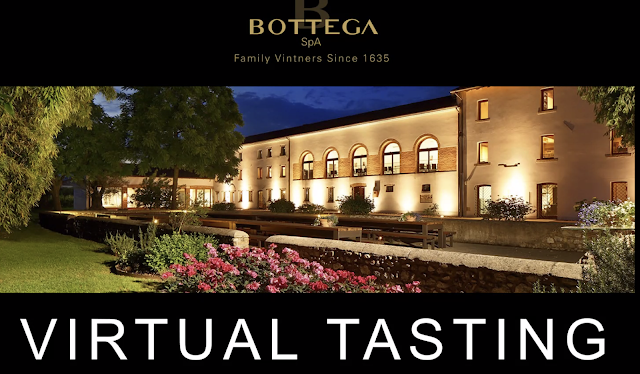A couple of summertime beauties, Prosecco and Rosé, from O'Briens Wine
Proverbio Prosecco (DOC) Organic Extra Dry, 11%, €16.95, was 20.45 O’Brien’s Nationwide.
Very light straw colour on this organic and vegan friendly Prosecco and there is a fine head of bubbles with more rushing up to join in. White peach, apple and pear feature in the aromatics, a hint of yeast too, pretty typical of the Glera grape.
It is fruity and sparkling, soft and fresh with an in-your-face acidity. Recommended as an aperitif (and I can confirm that) and also as a wonderful pairing with oriental cuisine (I’ll have to get another bottle to confirm that one!). Very Highly Recommended.
The producers, The Wine People, had a bit of fun with the name. While Proverbio is Italian for Proverb, it also incorporates three elements that describe the wine well: PRO for Prosecco DOC, VER for Vero (Truly) and BIO for Biologico (Organic).
Wine Folly advises that an extra dry style “is a great place to start with Prosecco”. “You’ll find the best wines come from the hilly areas..around Treviso and Colli Asolani, where the vines produce more concentrated grapes.”
Glera is the grape for Prosecco and indeed it was generally known as Prosecco. But, a few years back, the growers association changed the name and were thereby enabled, according to Grapes & Wine, to legally “protect the Prosecco name from being used elsewhere in the world”.
Wine-Searcher.com tell us: “Italian wine produced from Glera is almost always either frizzante (fizzy) or spumante (fully sparkling). A few still wines are also made from Glera…”
You probably know that Prosecco is made by the Charmat method. This uses a second fermentation in a large stainless steel tank to trap carbonation in wine. In the Méthode Champenoise, the second fermentation happens inside the individual bottles in which the wines are sold. More on these methods here.
The bottle weight is bit more than usual, as it the case with most sparkling wines (because of the contents being under pressure). The squat shape is also not usual; this particular one is more like a port bottle and not very different from some of the aged Redbreast bottles.
Château Gairoird Organic Rosé Côtes de Provence (AP) 2020, 13%, €14.96 (was 19.95)
This organic rosé from Provence, a blend that includes Cinsault, Grenache and Syrah, has a very pale salmon colour. Quite aromatic with, for me, strawberry leading the charge, also notes of grapefruit and white peach. Strawberry also on the full flavoured palate, raspberry too. By the way, the flavours are quite vigorous, far from the delicate that you sometimes find in rosé. It has good balance too. Plus a refreshing finish from this dry and elegant wine. Highly Recommended
Perhaps this is more suited to table rather than aperitif duty. A veal blanquette, cheeses, crab fritters, tuna tartare, grilled salmon, linguine with tomato and olive sauce, are among the dishes suggested.
Here is an extra use for it, one that came about more or less by accident. There was a little of this wine left over towards the end, close to a glass. There was also a little drop of the marvellous Viking Blackcurrant Liqueur in the fridge so I introduced them to each other and this improvised Kir turned out to be quite a treat.You know of course that the traditional Kir is made with white wine and creme de cassis (blackcurrant).
O’Brien’s, the distributors, tell us the Pierrefeu family has owned this estate since 1824 and have farmed it organically for the last ten years. The estate has a maritime climate and benefits from a sea breeze every day which keeps the grapes healthy and disease free without the need for spraying, this is a deliciously elegant textbook Provence. The terroir is classic Provence with free-draining, chalky-clay soil dotted with galets and, with wonderful echoes of Jean de Florette, the Château has its own ‘source’.







































